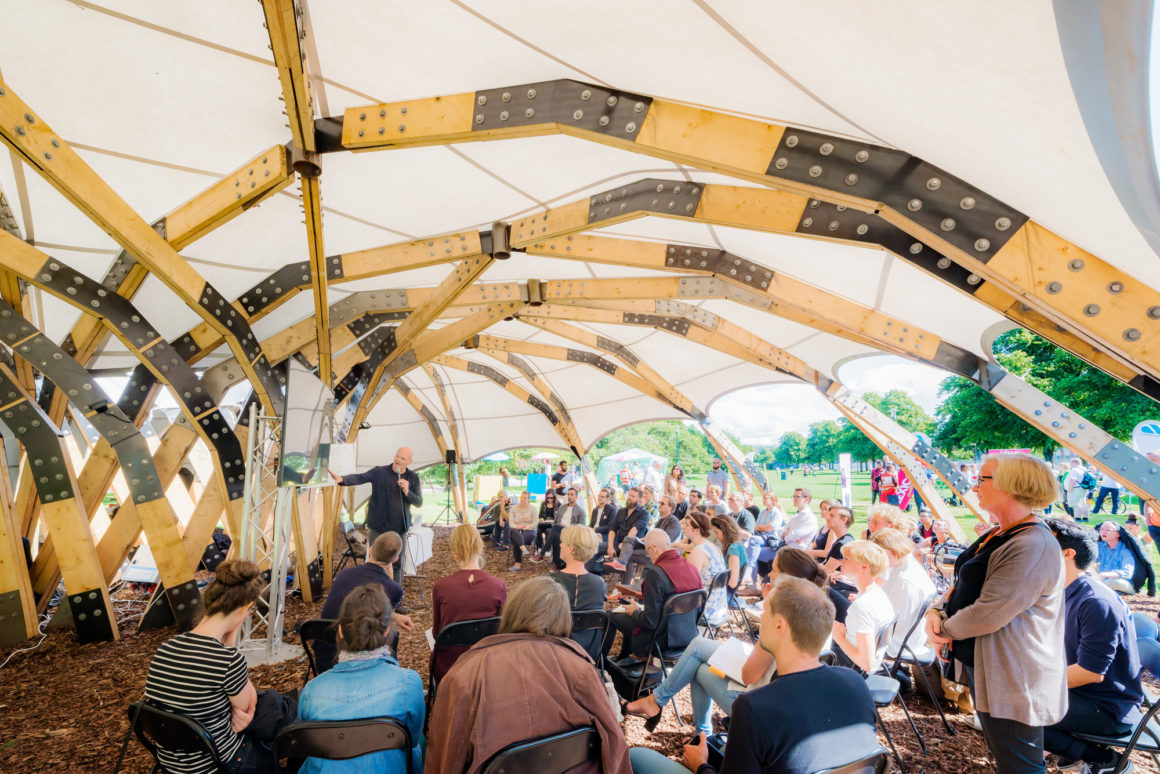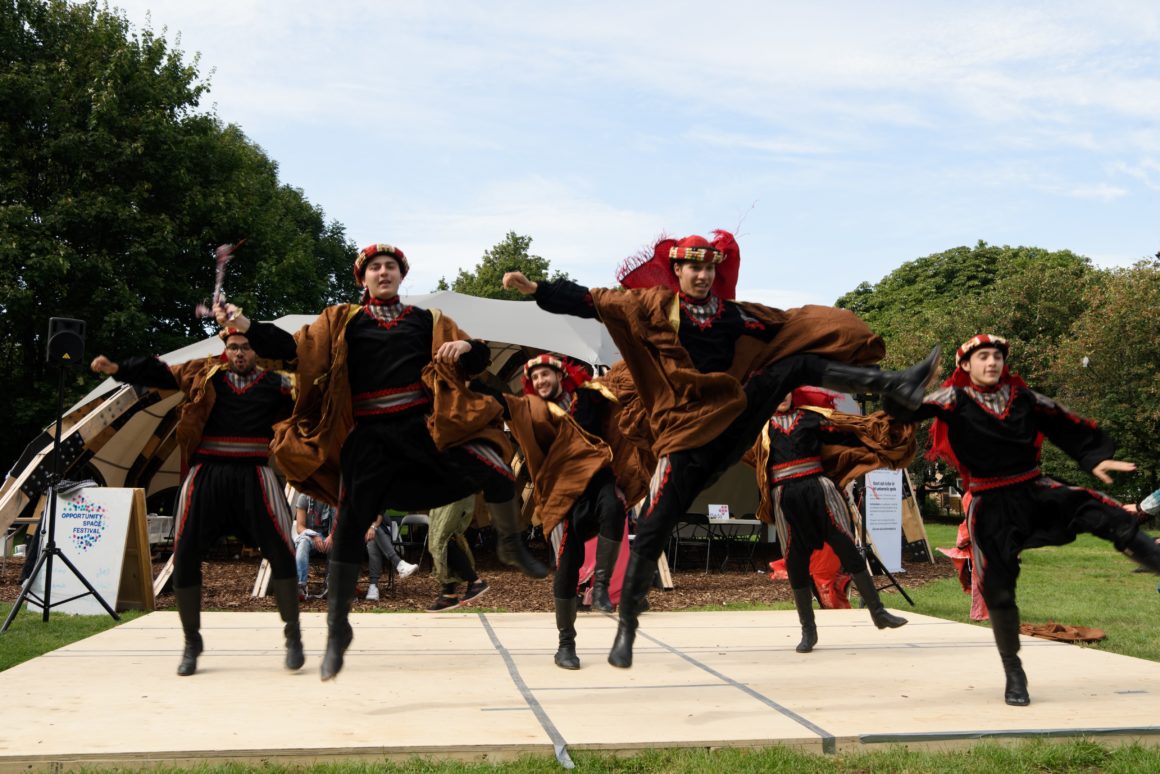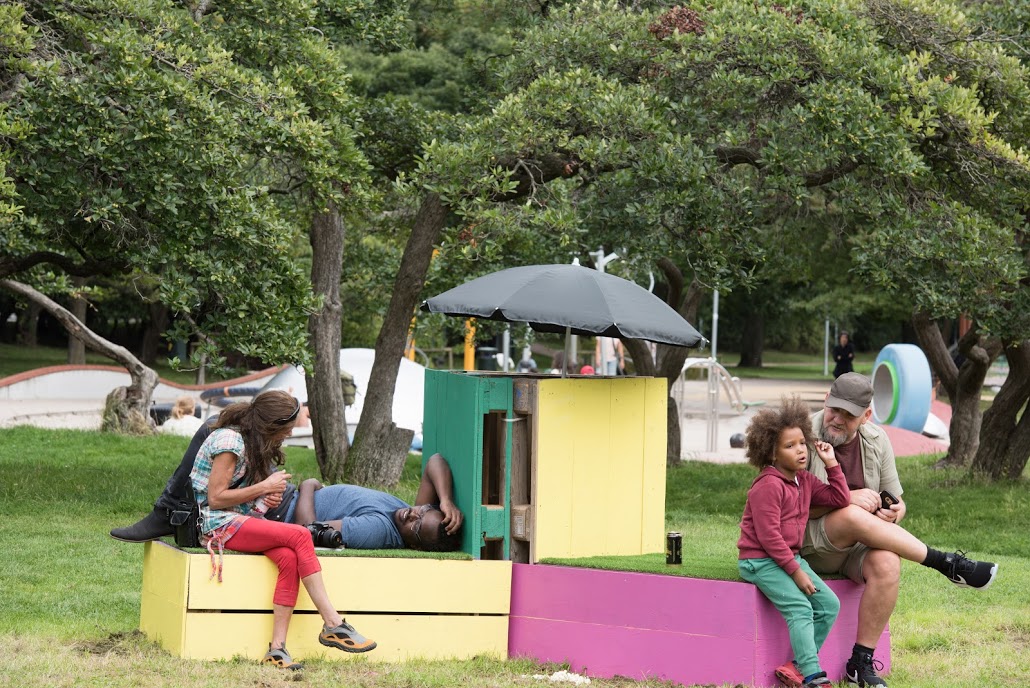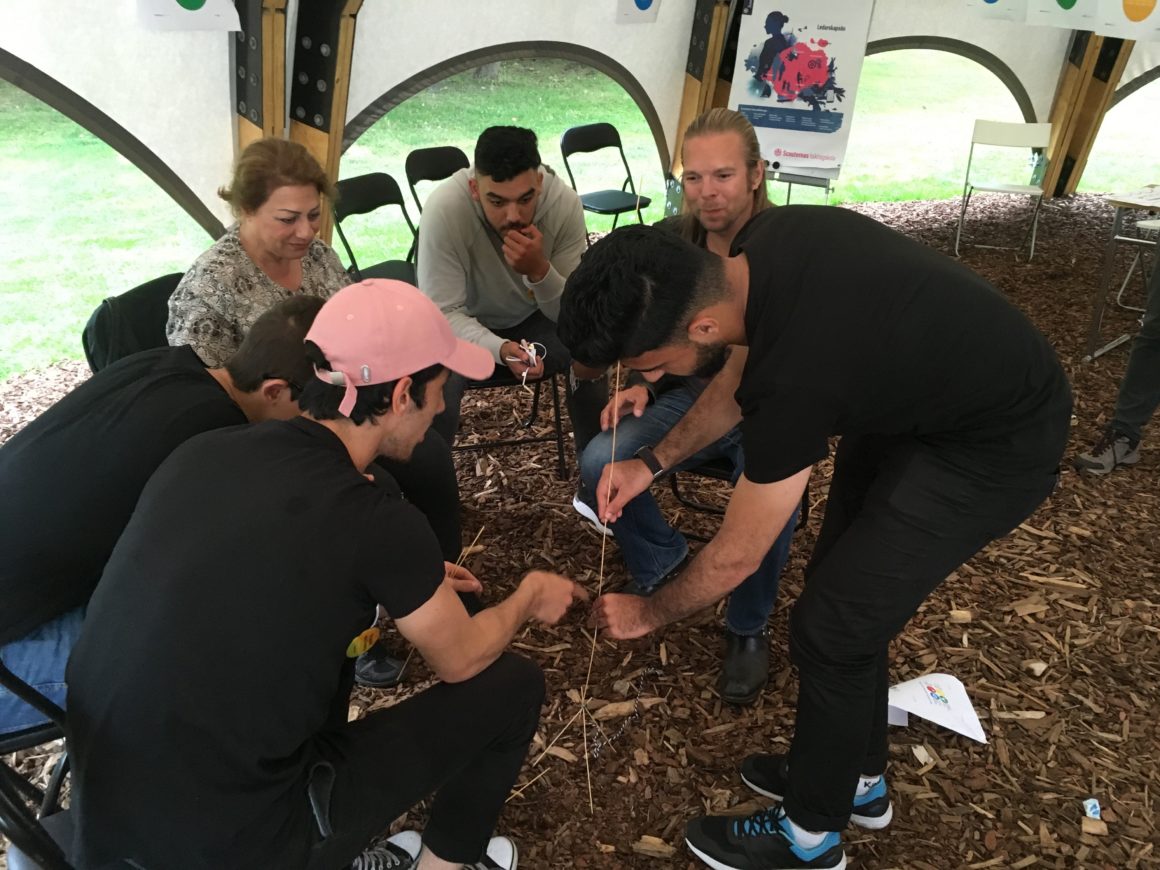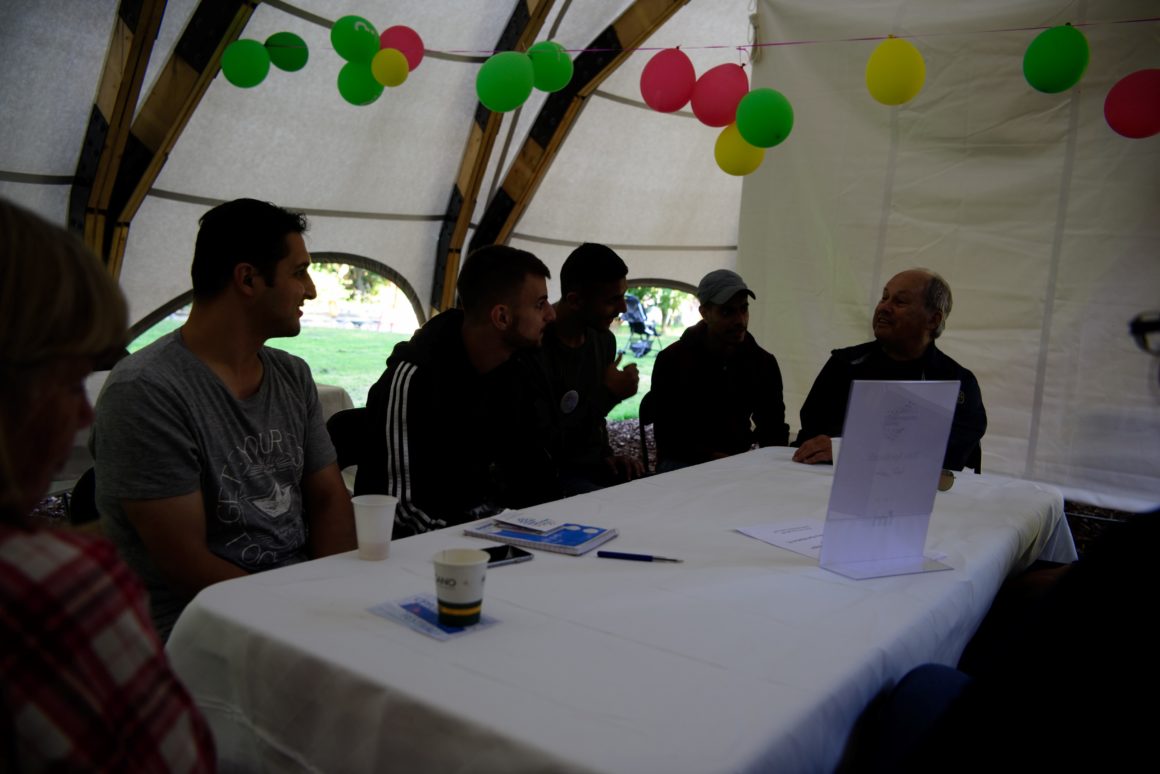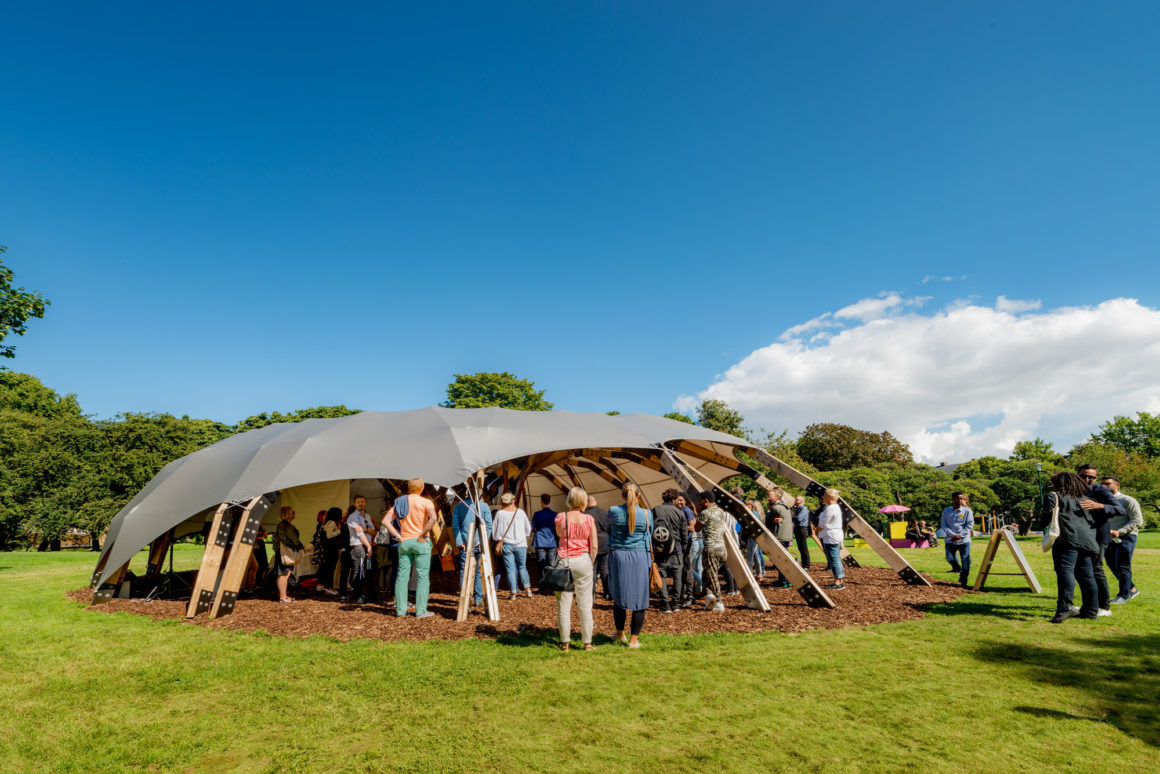
The Opportunity Space Festival, held August 22 — September 2, 2017, brought together refugees, asylum seekers, and established residents in Malmö, Sweden for twelve days of free programs to support social and economic inclusion.
Van Alen worked with more than 30 NGOs, government agencies, and businesses to organize the festival and offer programs. More than 1,300 people visited the festival for shared meals and dance performances; CV-writing workshops and job interviews; and other activities to help people meet each other, learn new skills, exchange ideas, and prepare to enter the job market.
The festival took place in a custom-designed temporary pavilion selected from Van Alen Institute’s 2016 Opportunity Space design competition.
How can cities create more socially and economically inclusive places and communities? We learned a tremendous amount about this question from all of our festival partners. Here are a few highlights for key stakeholders in any city grappling with the challenges of inequality and exclusion.
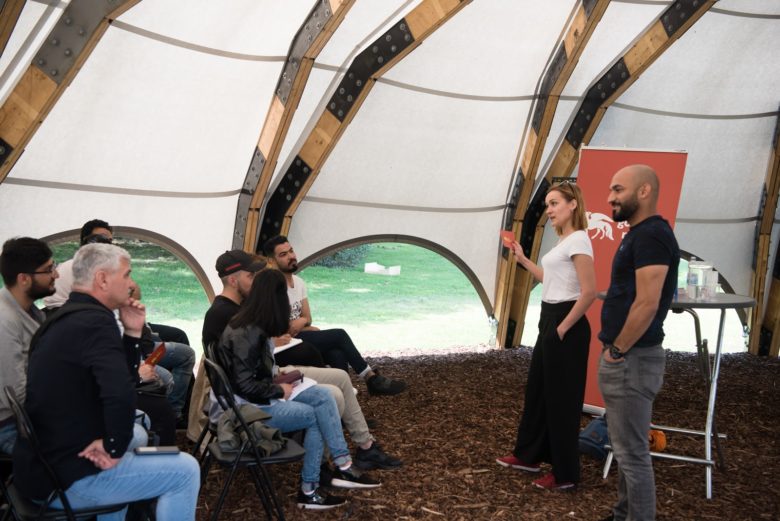
Cities can offer many different resources (language classes, job readiness programs, counseling, etc.) to help marginalized groups establish a place in society. But it’s not enough to ask people in these groups to adapt. Inclusion also means changing perceptions and practices among established residents, business leaders, and other stakeholders. For example, employers may not know that they can find exceptional talent in unconventional candidates; or, migration officials may need to relax language requirements that prevent recent immigrants from finding work.
The job training program Good Malmö works with many companies in the Malmö region to connect them to young people ages 18-30 who are entering the job market for the first time. Good Malmö offers job seekers training on writing a CV, navigating the job market, and other skills needed to find work. But just as important is Good Malmö’s work with HR directors to help them see the talents they’re looking for in candidates they might otherwise overlook.
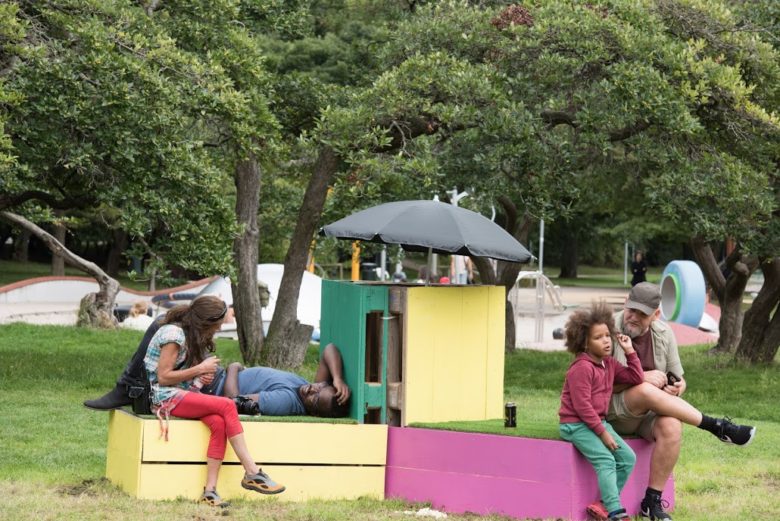
In many cities and communities dealing with rapid demographic change, there’s an urgent need to encourage social inclusion. But it takes time to establish trust among strangers, or to understand deeply ingrained ways of thinking or unconscious biases in people from very different backgrounds. To make real, lasting impacts, city officials, philanthropies, civic organizations all need to plan for long horizons and sustained engagement, as well as short-term progress.
For the Opportunity Space Festival, the design firm Meshworks worked with a group of job-seeking and newly arrived designers to create temporary benches for festival visitors. The project began five months before the festival opened, with members of the group meeting with established mentors and local stakeholders to learn about the park where the festival was being held, and develop and refine their design ideas. This process allowed the group time to establish professional networks (all of the newly arrived participants found jobs or internships), and gain confidence in completing a complex, multifaceted project. The benches the group produced were wildly popular, but the process to create them produced the bigger long-term impact.
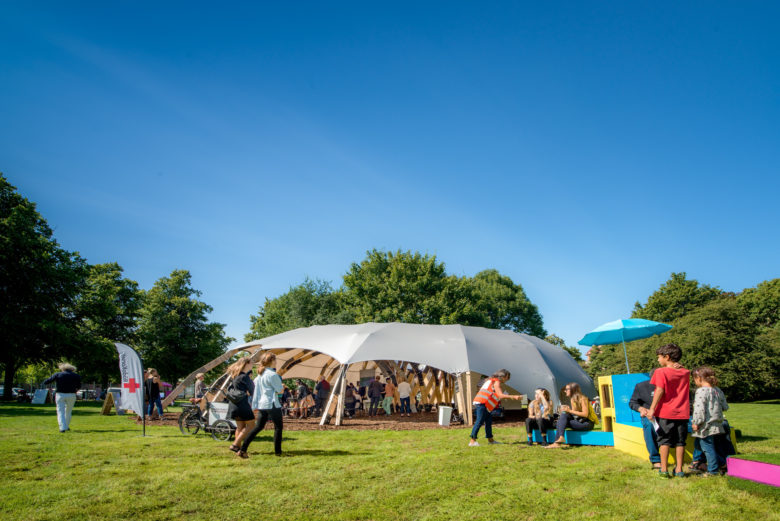
Hate groups, fake news outlets, and other entities that demonize marginalized groups have become increasingly prominent online and in public. Meanwhile, the hard to work to create more socially inclusive cities mostly takes place out of sight, in countless church basements, classrooms, and employment agencies. Bringing social inclusion activities out into public space, and giving them highly visible platforms such as the Opportunity Space Festival’s temporary pavilion, achieves multiple goals. For instance, greater visibility makes it easier to attract people to participate.
Researchers have found that to change people’s behavior, their perceptions of social norms are more important than their personal beliefs. If city government is prominently involved in creating public spaces that promote social inclusion, it can send a clear message to everyone about that city’s values and priorities.
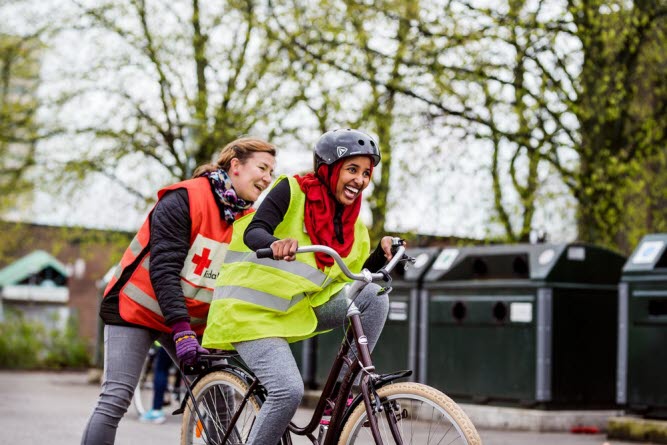
Social inclusion is not a mysterious process; it can start with participating in simple, everyday activities and rituals. For instance, the Red Cross in Sweden offers a Biking School class to recent immigrants of any age, providing a bike and helmet, and safe places to learn to ride.
What makes riding a bike important for social inclusion? In Sweden, where bicycling is considered a birthright, many recent immigrants come from places where bicycles are much less part of everyday culture; these new arrivals may not own a bicycle or know how to ride. Learning this skill is not simply about making it easier to get around, but about becoming part of a shared culture that established residents take for granted.
More than a million refugees and migrants entered Europe in 2015, highlighting one of the toughest challenges that cities around the world will face for decades to come: In an era of great uncertainty, how and where can people find opportunity?
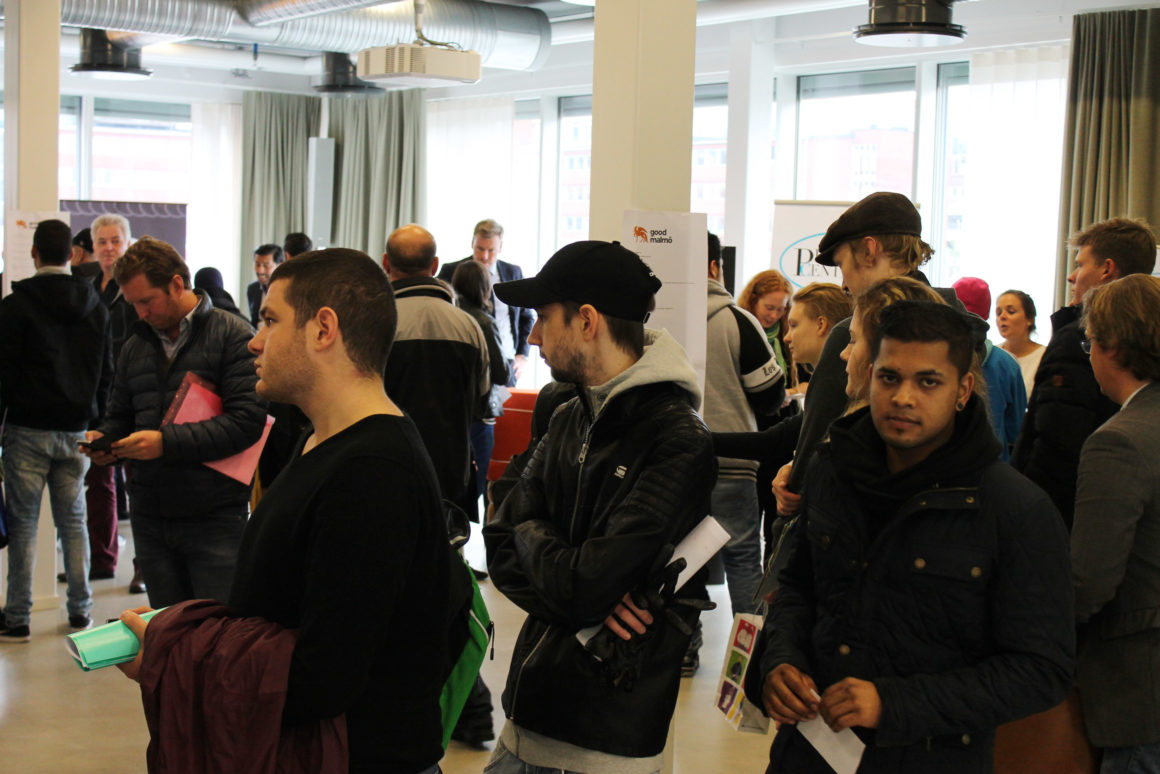
photo: Åsa Kalée
The City
Malmö was an ideal place to explore this question. A rapidly growing and diversifying gateway city to Scandinavia, Malmö was also the point of arrival for the vast majority of refugees and asylum seekers (or “new arrivals”) settling in Sweden – up to 10,000 a week in 2015. Analysts estimate that the average age at which people in Sweden find their first “real” job (one that allows them to qualify for a mortgage, for example) is 29, and that it takes new arrivals up to seven years before they are gainfully employed.
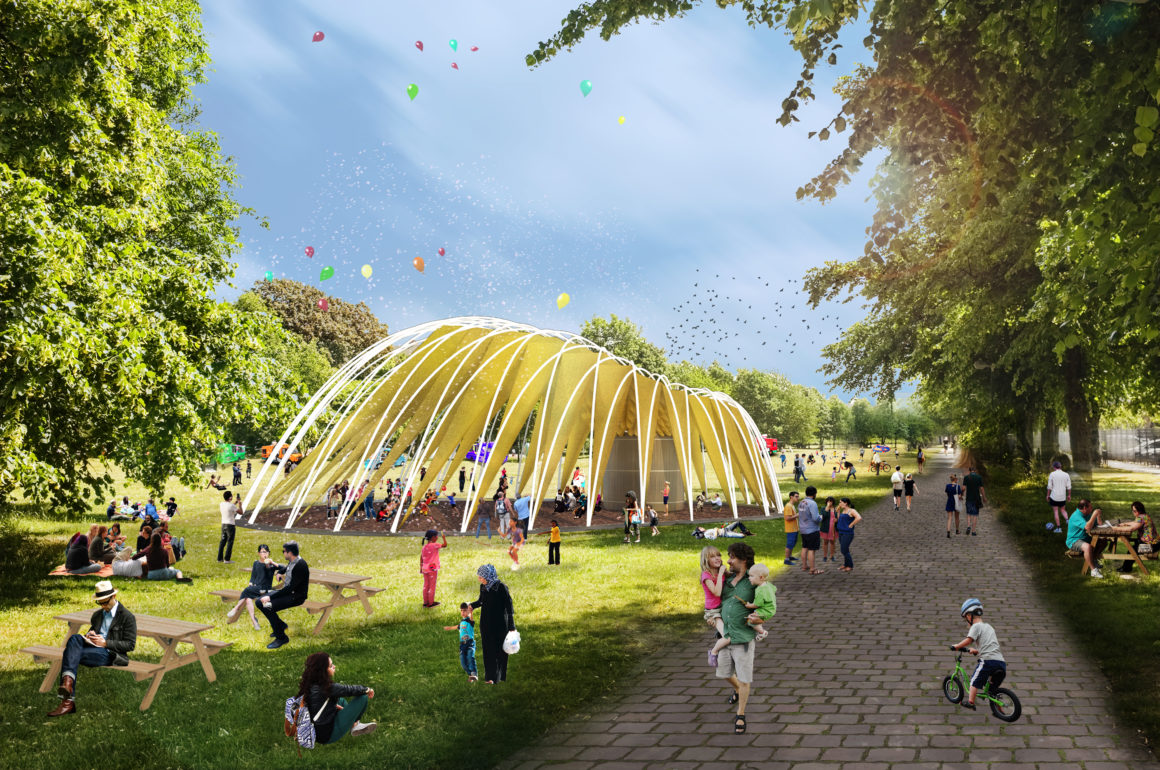
image credit: Folkets House team
The Pavilion
In October 2016, Van Alen Institute launched an international design competition for the temporary pavilion. A distinguished panel of jurors selected the Folkets House team, which drew its inspiration from Swedish labor union buildings that originated in the 19th century as venues for public meetings and cultural activities. Skanska donated the labor to build the pavilion.
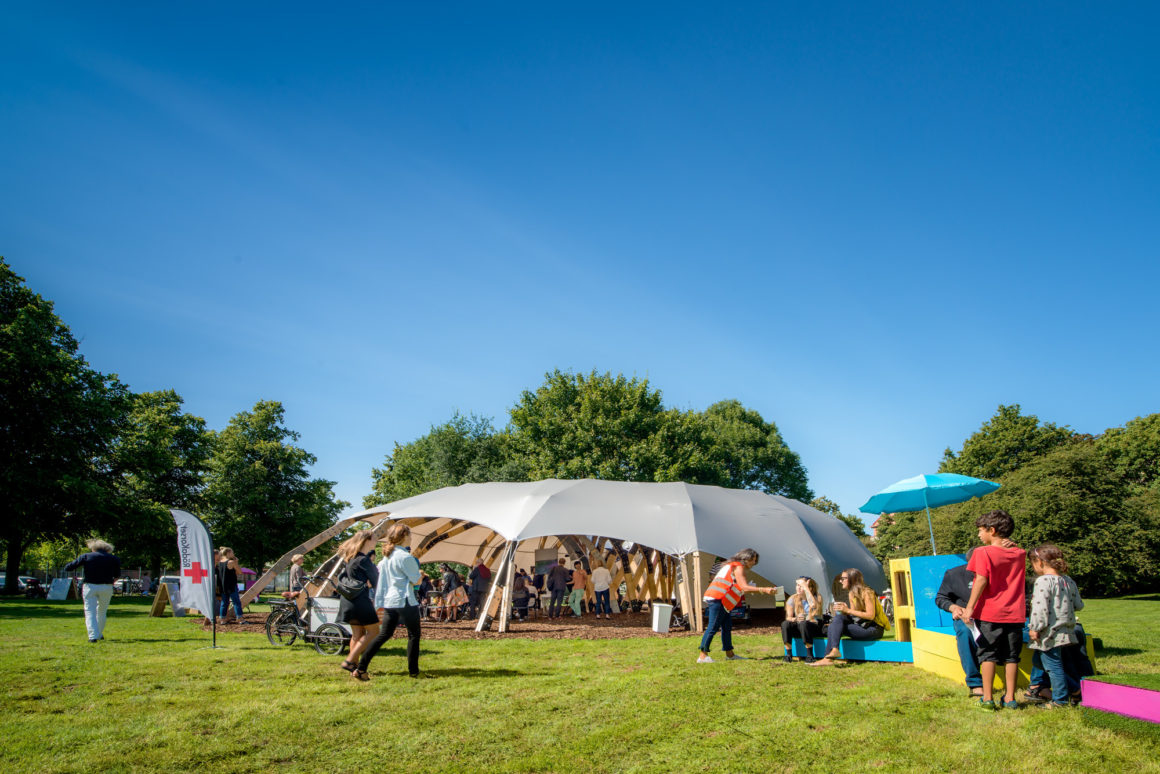
The Park
The Malmö we saw during Opportunity Space was a city in transition: growing rapidly, the site of major development projects and initiatives tasked with accommodating the city’s large number of new arrivals.
Enskifteshagen Park stood at the heart of many of these changes, with a new commuter rail station set to open in 2018, and ambitious long-range plans for new housing in the area. The park is located between Malmö’s Möllevången and Rosengård neighborhoods, well-known immigrant hubs with some of the city’s most diverse populations. Directly adjacent to the south is the Sofielunds Industrial Park, which is home to a wide range of small businesses and other uses.
Press
Van Alen Institute kicks off Opportunity Space Festival in Malmö, open now until September 2, Archinect, August 24, 2017.
A new festival has begun in Malmö, Skånska Dagbladet, August 23, 2017.
New festival in Malmö will create real meetings, Sydsvenskan, August 22, 2017.
Interview about the Opportunity Space Festival, Swedish Radio P4 Malmöhus, August 22, 2017.
‘People’s House’ will be the center of the International Integration Festival in Malmö, Sydsvenskan, May 30, 2017.
How Architecture is Helping Refugees Find Jobs in Malmö, Sweden, Architectural Digest, June 9, 2017.
This Pop-Up Pavilion Will Help Refugees Find Local Jobs, Fast Company, June 9, 2017.
Twelve-day Festival in Malmö, Sweden will Match Citizens to Jobs, Sydsvenskan, May 30, 2017.
Malmö – Sweden’s City of Arrivals, Bauwelt, December 20, 2016.



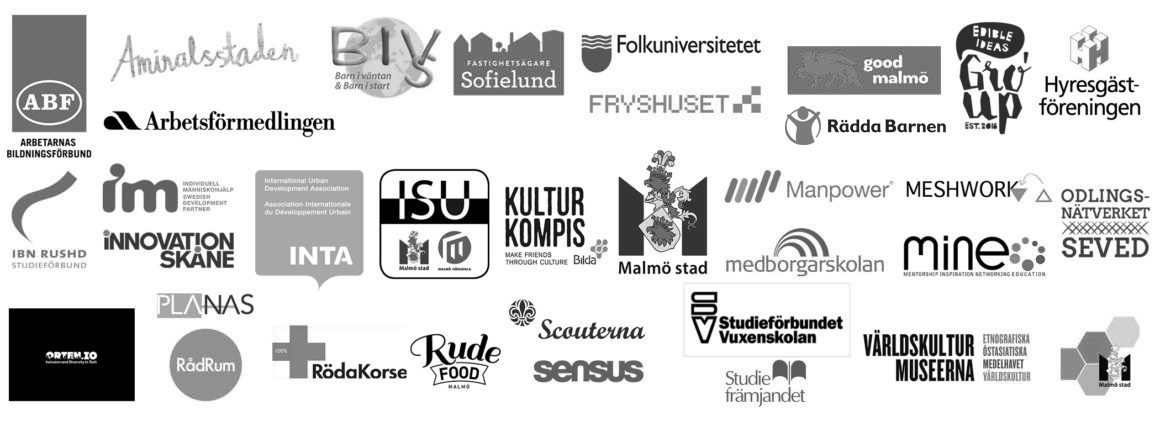
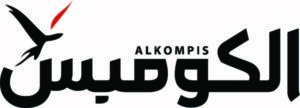
Van Alen Institute assembled a unique cross-sector coalition of government agencies, businesses, and NGOs to organize the festival, and partnered with more then 25 organizations around the city to offer programs.
Program Partners
Amiralsstaden is a City of Malmö urban development process centered around the future Rosengårds rail station to create good living environments in the surrounding areas of Sofielund, Annelund, East Sorgenfri, Emilstorp and Rosengård.
Anna Lindh Foundation (ALF) brings people together from across the Mediterranean to improve cross-cultural respect and to support civil society working for the region’s common future.
Arbetsförmedlingen is Sweden’s Public Employment Agency. We provide employment services to both job seekers and employers, prioritizing those who are furthest removed from the labor market.
Architects Sweden is the professional organization for architects, interior architects, landscape architects and spatial planners in Sweden with 12,800 members, including 2,600 students.
Fryshuset is a meeting place where people share and develop passionate interests, social commitments, sports, entertainment, culture and innovative educational programs. All in all Fryshuset employs around 600 people and receives around 40,000 visitors every month, in Sweden’s bigger cities.
Good Malmö is a collaboration between Malmö’s business community, the private foundation Uppstart Malmö, the City of Malmö, and the Public Employment Agency. We create paths to employment for young people who are outside the labor market by covering the salaries of new hires at participating companies for one year.
Gro’up is the first food space in Malmö where people, food and food culture are at the heart of every activity. We use food and food culture as social tools to drive change in the way we think and act around food related topics on a daily basis.
Hyresgästföreningen organizes tenants to protect their rights and assist them in conflicts with their landlords. We also negotiate 90% of all rents in Sweden.
Ibn Rushd is a Muslim education association open to all. We work to ensure democracy and human rights, and to strengthen the Swedish Muslim identity. We offer a wide range of seminars, study circles, discussions, and cultural events.
Innovation Skåne provides professional business guidance across all sectors to entrepreneurs, innovators, researchers or anyone with great ideas and the ambition to build a strong, internationally minded enterprise.
ISU – Institute for Sustainable Urban Development is a joint venture between The City of Malmö and Malmö University. The Institute deals with sustainability in its broadest sense, addressing ecological, economical, social and cultural issues.
The International Urban Development Association (INTA) is a global membership association where public and private policy-makers and urban practitioners come together to share knowledge, experience and performing tools for integrated urban development.
Labour Market and Social Services Department, part of The City of Malmö, helps to strengthen long-term unemployed residents’ ability to work and become self-sufficient.
Malmö Red Cross strengthens community resilience in the areas of migration / integration, health, and civic participation.
Manpower Group is a world leader in the field of staffing-related services. We are one of the ten biggest employers in Sweden and had a turnover of SEK 4.7 billion in 2012.
MINE is a non-profit member organization aiming to increase workplace diversity. We help businesses diversify their workforce, and help them understand that diversity leads to both economic growth and business development.
The Museum of World Culture is a meeting place with exhibitions and programs about current events. We create a platform for dialogues and reflections, where different voices can be heard and controversial topics discussed.
Odlingsnätverket Seved is a socio-organic farming nonprofit that works to create green meeting places and a long-term sustainable urban environment in Sofielund. We coordinate recreational and organic food producing neighborhoods in the area
Orten.io brings tech industry education and entrepreneurship to underserved communities in Sweden. In these multicultural areas, we encourage people to explore and pursue tech in their careers and everyday life.
PLANAS: We are a team of self-organized, job-seeking built environment professionals engaged in projects to improve the public realm, and support our own individualized path towards employment.
Rude Food is Sweden’s first rescued food catering service, and a not-forprofit initiative to counter food waste in the city. We identify food waste points and re-circulate the excess through upscale pop-up events and catering.
The Guides and Scouts of Sweden prepares young people for life! Being a Scout means experiencing adventure with others in an international community while growing as a person. There are 40 million Scouts worldwide, about 70,000 in Sweden.
The Sofielund BID is a nonprofit that works to enhance the well-being, security and cohesion of Sofielund.
Studieförbunden (Study Federations) are Sweden’s largest meeting places for free, voluntary learning. With funding from federal, regional and municipal government, Study Federations support all people’s access to education and culture.
Tjejer i Förening (ABF) promotes equal opportunities for all children and young people to be active participants in their communities. Our work is based on the principles of the UN Convention on the Rights of the Child and gender equality.
Yalla Sofielunds is a City of Malmö-led initiative based on the methods of the women’s empowerment NGO Yalla Trappan. We provide education and create networks with the goal of providing work opportunities.
Organizing Committee
Aida Al Akrawi, IM – Festival Coordinator
Jerome Chou, Van Alen Institute – Project Manager
Siamak Afshari, Folkuniversitet
Hans Andersson, Wihlborgs
Niels de Bruin, White
Thomas Brunk, City of Malmö, City Planning Office
Carl-Gustaf Fritz, JM
Sverker Haraldsson, City of Malmö, Streets and Parks
Thomas Johnsson, E.ON
Åsa Kalée, Good Malmö
Gunilla Kronvall, Architects Sweden
Pia Hellberg Lannerheim, City of Malmö, Trade and Industry
Christer Larsson, City of Malmö, City Planning Office
Akbarnazim Modan and Anna Wachtmeister, Meshworks
Lotta Möllerberg, Manpower
Anna Nambord, Wihlborgs
Martin Nihlgård, Individuell Människohjälp
Louise Palm, NCC
Anders Tojkander, NCC
Charlotte Wadström, MKB
Rebecca Wennberg, designer
Camilla Wieslander, Skanska Öresund
Collaborators
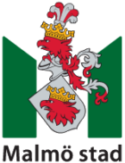
Malmö, Sweden is the commercial center of southern Sweden and an international city with 300,000 residents from approximately 170 different nationalities.
Malmö is undergoing a transition from being an industrial city to a city of knowledge. Older industries have been replaced by investments in new technology, training programs, and infrastructure – including the Öresund Bridge, which connects Malmö to Copenhagen. Malmö University, which opened in 1998, is Sweden’s latest venture in the field of higher education, accommodating some 24,000 students.
Over the last years the City of Malmö has received many international awards for its focus on sustainable city development and pilot projects such as Augustenborg and the Western Harbour. Malmö was also appointed as the first Fairtrade City of Sweden.
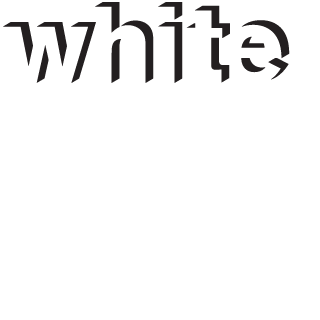
White Arkitekter was founded by Sidney White in 1951 and is Scandinavia’s leading architectural firm with over 900 employees working in 16 offices in Sweden, Denmark, Norway and the UK. Our work is research focused and our expertise encompasses architecture, urban design, landscape architecture and interior design.
For nearly two decades, White has invested in establishing a unique research-based department of highly qualified experts in the field of sustainable design. Our founder’s aim was to improve society through architecture and his legacy lives on in our ambition to contribute towards the building of a sustainable world.
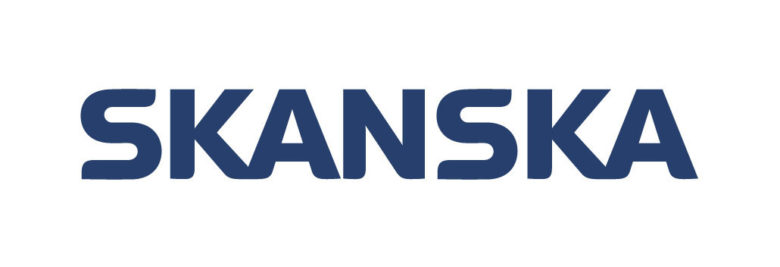
Skanska is one of the world’s leading project development and construction groups with expertise in construction, development of commercial and residential premises, and public-private partnerships projects. Based on its global experience, Skanska aims to be the clients’ first choice for Green solutions. The Group currently has 43,100 employees in selected home markets in Europe and North America. Skanska’s sales in 2015 totaled SEK 155 billion.

Individuell Människohjälp (IM) is a Swedish member-based organization fighting and exposing poverty and exclusion through development cooperation, integration and Fair Trade. Founded in 1938, IM is currently working in five regions and thirteen countries worldwide.
IM’s international work focuses on people´s right to education, good health and ability to sustain a life in dignity. All projects are implemented in close collaboration with local partner organizations. IMs work in Sweden is focusing on integration and inclusion into society. The strengthening of civil society is both a means and an objective in all activities.
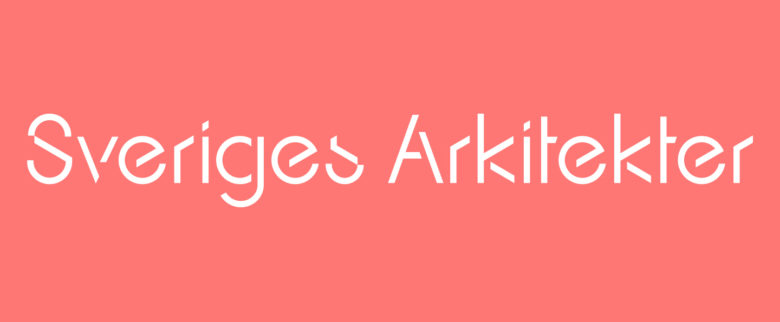
Architects Sweden is the professional organization for architects, interior architects, landscape architects and spatial planners in Sweden with 12 800 members, including 2,600 students.
The Design Team
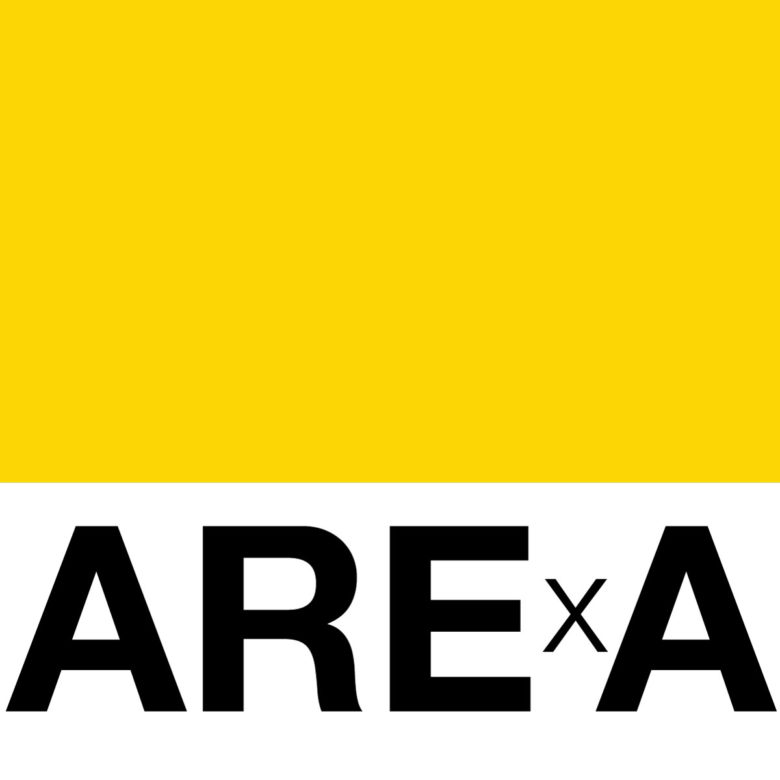
ARExA is a multi-disciplinary research and design practice based in New York City that is dedicated to advancing the understanding and implementation of the built environment. ARExA’s current focus is on innovative urban housing solutions and grant-funded sustainable food systems research. Project Team: RIk Ekström, Managing Partner; Darrick Borowski, Partner / Design Director; Sean Karns, Director of Special Projects; Peter Park, Design Associate

Walter P Moore is an international company of engineers, architects, innovators, and creative people who solve some of the world’s most complex structural and infrastructure challenges. Across 15 offices, this 600-strong firm of 85 years, and focuses on high performance building enclosures and specialty structural systems. Project Team: Gustav Fagerström, Digital Practice Leader; Steve Lewis, PhD, PE; Jeff Thompson, PE
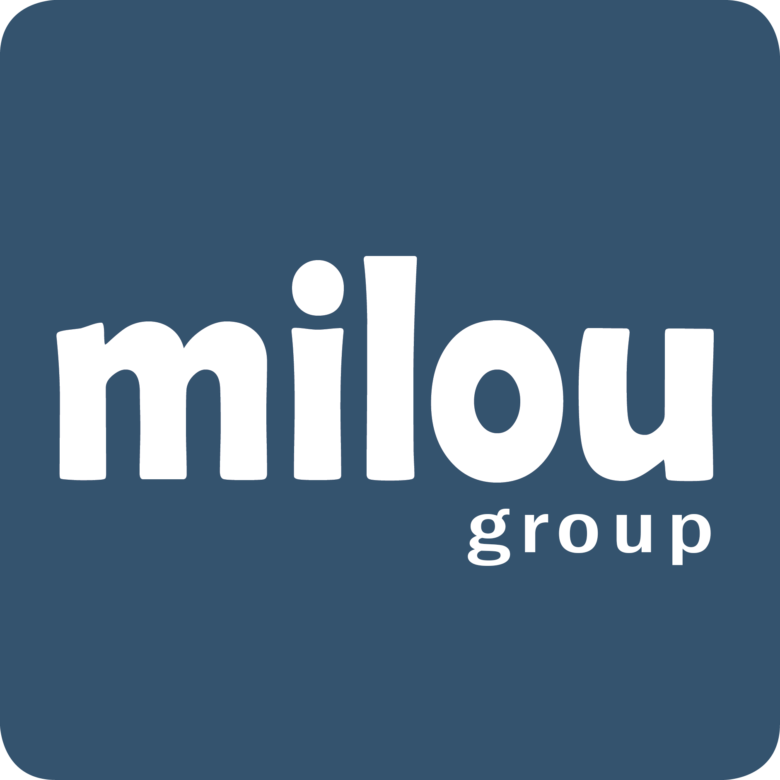
Milou Group is an innovation driven company that explores architecture, technology and new real estate. With an entrepreneurial spirit and a range of cross-disciplinary collaboration Milou Group develop new concepts and solutions that rethink living and working in cities, meeting the ever changing demands of global users in the new economy. Project Team: Milad Barosen – Co Founder | CEO; Kim Turley – Tech Director; Mathias Eliasson – Architect
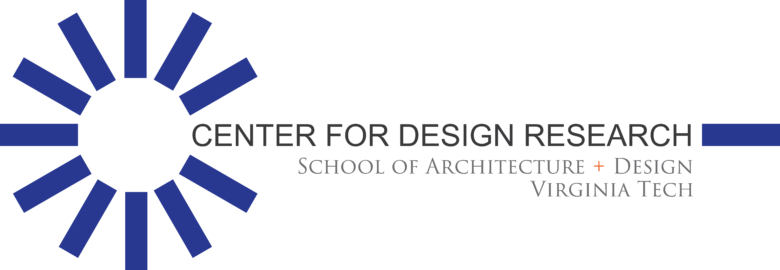
The Virginia Tech School of Architecture + Design, Center for Design Research links the academy, industry, and design practice by creating opportunities for collaboration through applied research. The work of the CDR and its participants expands the scope of design and embraces collaboration across many scales and disciplines with the goal of technological innovation and paradigm shifts that enable more with less in ways that have the potential to expand the research of design/designers to influence systemic global impact. Project Team: Nathan King, Co-Director / Assistant Professor
